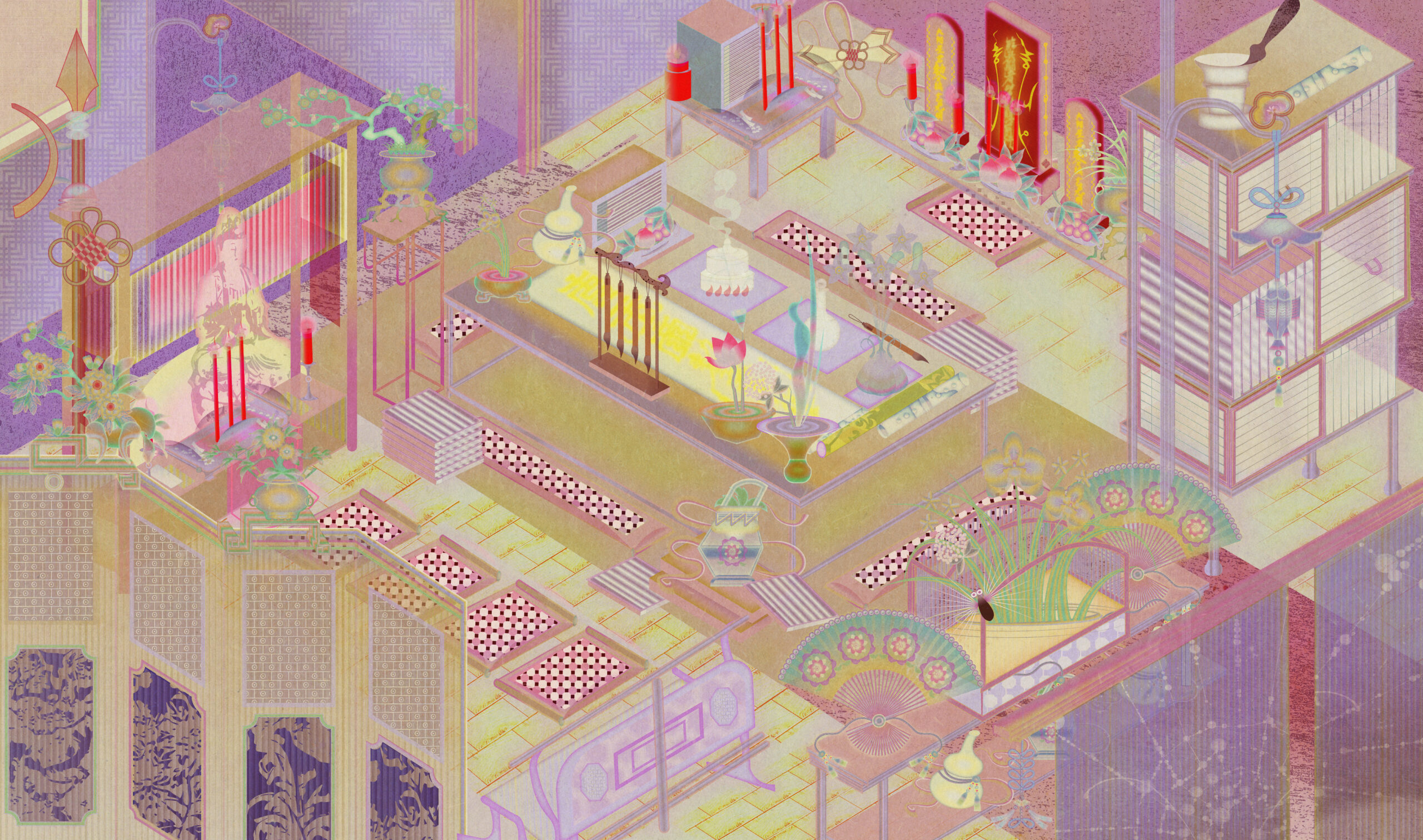YOU ARE NOT A GADGET
| June 5, 2011 | Post In LEAP 8

The recent group exhibition at Pékin Fine Arts alludes to a bestselling book of the same title in the United States last year. The book identifies how “gadgets”—handheld electronic devices, particularly smartphones—have effectively hijacked our modes of socialization, constructing a virtual world that has made it difficult to locate the self in our current state of reality. The works featured in the exhibition deal with the overwhelming scope and influences “gadgets” on life in the Internet age.
Leng Wen’s “Desktop” series shows computers overflowing with pictures of her friends, who all participate in a form of online exhibitionism, painstakingly shaping their profiles to put themselves and their obsessions on display. Then there is Lu Zhengyuan’s “The Moon in My Room,” where one look leaves the viewer with a hollow feeling—the lonesome sort of emptiness that accompanies the refractory period after a climax.
Men and women alike become wrapped up in the illusion of “virtual reality.” With the Viagra ads that sneakily steal into our inboxes, these solicitations serve as reminders of our corporeal reality and elusive nature of fulfillment. In their group of works entitled “My Spam Box,” Zhuang Hui and Dan’er brighten the colors and enlarge the images of pixelated advertisements to fit the dimensions of hanging tapestries. Creamy silk and sparkling crystals adorn the ads with bodies both dignified and vulgar. It’s as if those unsolicited messages somehow know a person’s every secret, offering special discounts that target the personal space of a single user’s e-mail account.
Want to talk about art? Unbridled free speech and gossip floods online message boards, where anyone can use a guest account to launch an attack. Identities become mutable and unstable in a fleeting flux of opinions and fifteen-minute celebrities. This characterization of the Internet is manifested in the “Upload Download” series where, with painted images, Chen Shaoxiong renders the exchange of information in colorful, noisy, and chaotic contours. The transmission of information becomes a sharing of material things. In Huang Ran’s video piece, The Next Round is True Life, the figures on screen appear entranced, revealing vacant stares as they take turns chewing the same piece of gum. The gum gradually loses its flavor, but the mouths of the participants add new dimensions to the experience.
In the small space opposite this video work, Yan Xing makes use of performative narration, facing a white wall for nearly two hours. With his back to the audience, he engages in an intricately emotional description of the people in his life and the disputes that once unfolded between them. The story is recounted in such rich detail that it is “real” to the point of raising suspicion. Revealing with full exposure a liquidation of personal history, the audience becomes aware of Yan Xing’s trajectory through life. They come to understand why it is that “Daddy” will always be his favorite man—thus the title, DADDY. Yan Xing’s performance is documented in video; on the screen, he stands before unchanging, nondescript shadowy forms. His performance, when accompanied by the projection of the video recording, constitutes a mediation between the “real” and the “virtual.”
The works that occupy the common exhibition space provide a context for discussion; the cyclically recurring borderline between the real world and the informational dreamscape further reflect this convergence. At this point, the term “gadget” actually seems to refer to the individuals themselves who participate in this negotiation between the “real” and the “virtual.” In fact, it appears that to say “you are not a gadget” is a conclusion that the artists have come to hand in hand. They have cast off the constraints inherent in adapting a book, taking instead the award for “Best Original Screenplay.” Ricky Li

